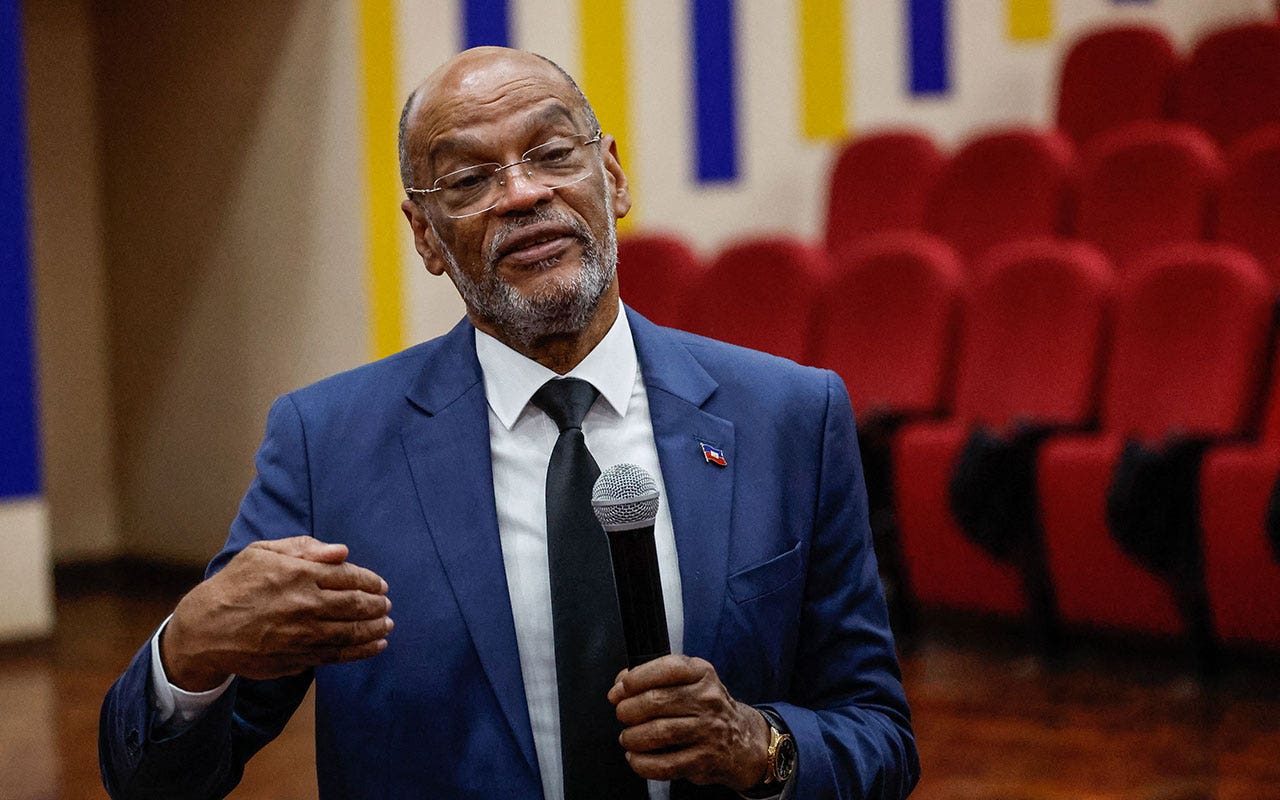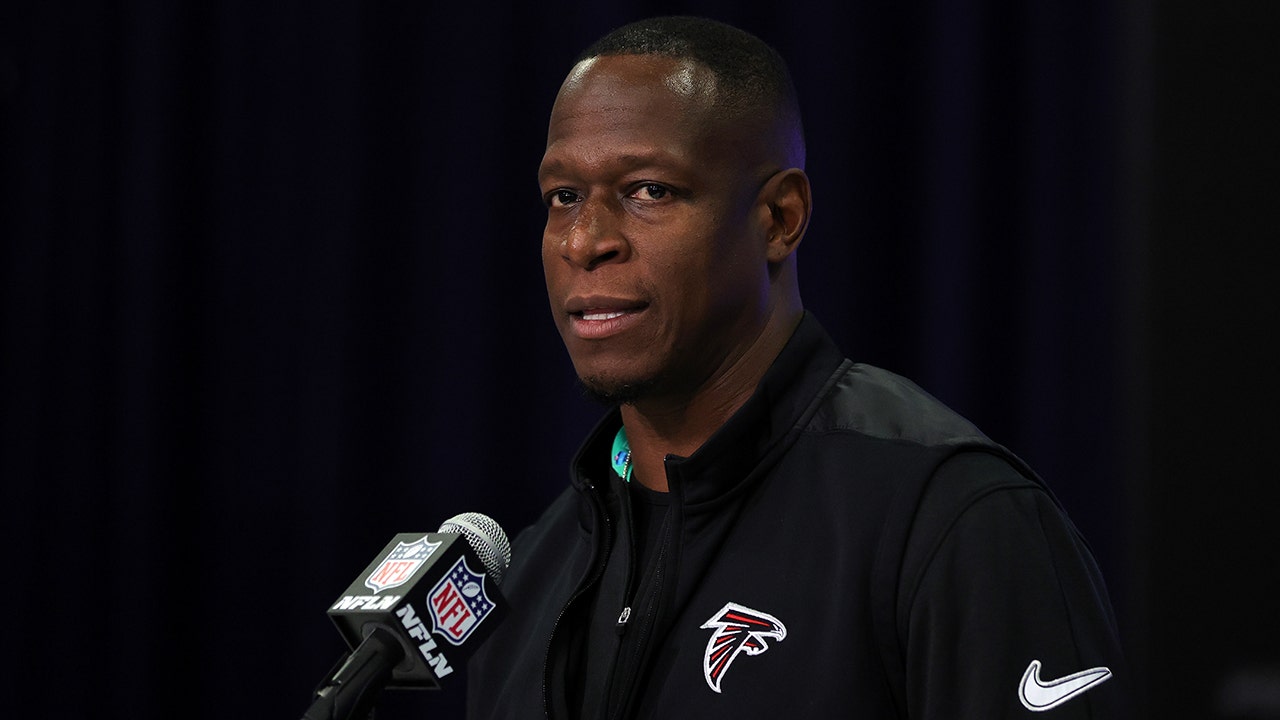Haiti’s newly installed transitional council chose former Sports Minister Fritz Belizaire as the country’s prime minister Tuesday as it presses forward in its monumental task of trying to establish a stable new government amid stifling violence.
Belizaire replaces Michel Patrick Boisvert, the former minister of economy and finance who was the current interim prime minister. Belizaire is little known and even some members of the council didn’t know him.
The nine-member transitional council, seven of whom have voting rights, was choosing a new prime minister and Cabinet in a bid to help quell gang violence that is choking the capital of Port-au-Prince and beyond.
US NATIONAL SECURITY FACES MAJOR RISKS AS GANGS BATTLE FOR CONTROL OVER HAITI
More than 90,000 people have fled Port-au-Prince in the span of one month, and overall, more than 360,000 people have been left homeless in recent years as gunmen raze communities in rival territories.
Former Haitian Prime Minister Ariel Henry speaks to students during a public lecture at the United States International University in Nairobi on March 1, 2024. Haiti’s newly installed transitional council chose former Sports Minister Fritz Belizaire as the country’s prime minister on Tuesday as it presses forward in its monumental task of trying to establish a stable new government amid stifling violence. (SIMON MAINA/AFP via Getty Images)
Belizaire had the support of four of the council’s voting members.
Earlier, the council chose Edgard Leblanc Fils, a former presidential candidate, as its president. “This experience proves we are capable of negotiations,” Fils said after announcing Bélizaire as the new prime minister.
The announcement of Bélizaire came as a surprise. A murmur rose through the attendees as Fils announced that four council members with voting powers had selected Bélizaire as prime minister.
HAITIAN OFFICIALS SCRAMBLE TO IMPOSE SECURITY MEASURES WITH COUNCIL INAUGURATION IMMINENT
Leslie Voltaire, one of the voting council members, told The Associated Press, “I don’t know him,” when asked whether he supported Bélizaire.
Bélizaire served as Haiti’s sports minister during the second presidency of René Préval from 2006 to 2011.
After the brief announcement, which was made nearly two hours after the event was supposed to start, the council went behind closed doors again to talk about their choices for Cabinet. Voltaire, however, said he didn’t expect the council to announce Cabinet selections on Tuesday.
The majority supporting Bélizaire as prime minister included Fils, the council’s new president, Smith Augustin, Louis Gérald Gilles and Emmanuel Vertilaire.
The transitional council will act as the country’s presidency until it can arrange presidential elections some time before it disbands, which must be by February 2026.
Haitians remain divided over whether they believe a transitional government can help calm a troubled country whose capital has been under siege since gangs launched coordinated attacks that began Feb. 29.
Gang members have burned police stations, opened fire on the main international airport that remains closed since early March and broke into Haiti’s two biggest prisons, releasing more than 4,000 inmates. The country’s biggest seaport also remains largely paralyzed by gang violence.
But one thing is certain: Haitians want security. “Haitians are very impatient now. They want to see results,” said Robert Fatton, a Haitian politics expert at the University of Virginia.
The council is expected to support the U.N.-backed deployment of a Kenyan police force to help fight gangs, although it’s unclear when that might happen.
Former Prime Minister Ariel Henry was on an official trip to the East African country when the coordinated gang attacks began, and he remains locked out of Haiti. He submitted his resignation last week.



